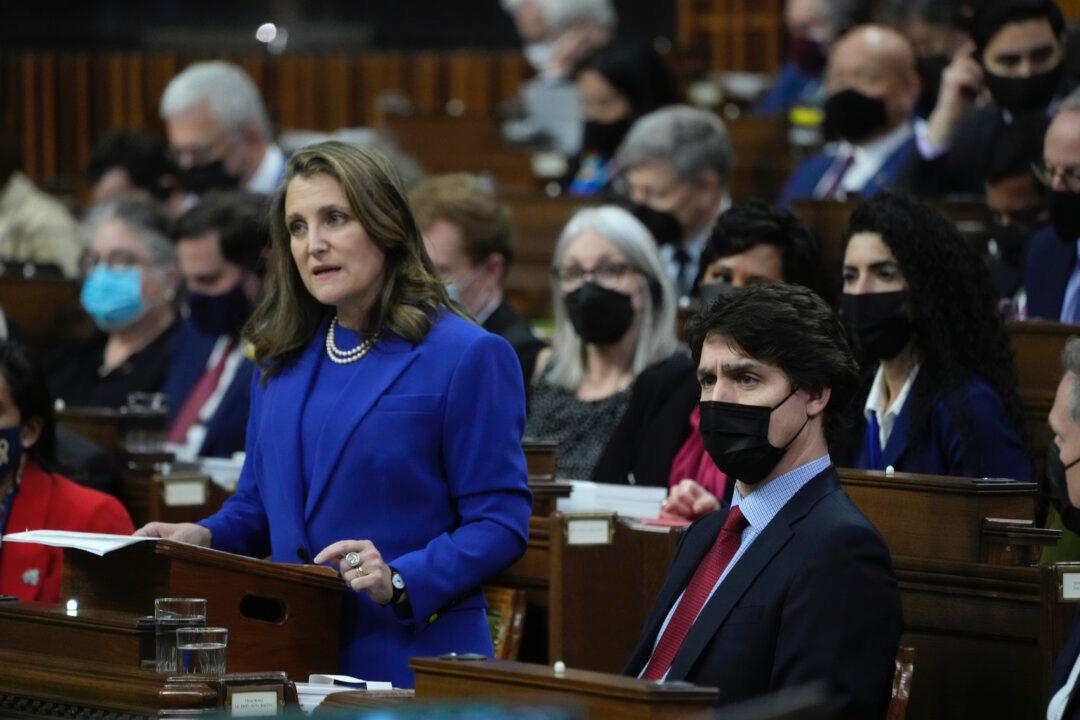It will take the federal government at least 20 years to balance the budget, judging by its current state and only if granted a generous forecast, says the Canadian Taxpayers Foundation (CTF).
Using supplementary data from Fiscal Sustainability Report 2022 published by Parliamentary Budget Officer (PBO) Yves Giroux on July 28, the CTF compared Canada’s year-by-year projections of total revenue, total spending, budgetary balance, and interest charges from 2022 to 2041.





